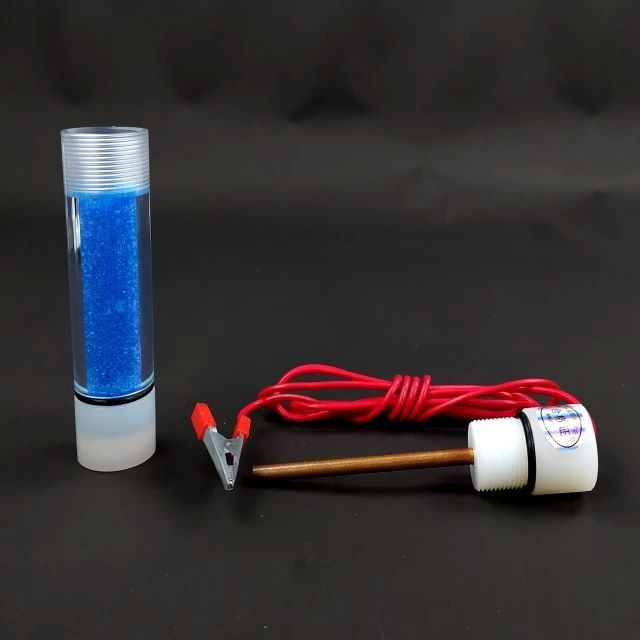
Electrochemical Consumables
Copper Sulfate Reference Electrode for Laboratory Use
Item Number : ELERCS
Price varies based on specs and customizations
$65.00 / set
- Specifications
- ceramic core / cork core
- Rod material
- pp
Shipping:
Contact us to get shipping details Enjoy On-time Dispatch Guarantee.
Why Choose Us
Easy ordering process, quality products, and dedicated support for your business success.
We offer a Copper Sulfate Reference Electrode for Electrochemical Experiments that comes in complete models made of high-quality materials. Our reference electrode is safe and durable, and can be customized to meet your specific needs.
Technical specifications
| Specifications | ceramic core / cork core |
| Rod material | pp |
| Usage | Inject distilled water on top of the powder |
Detail & Parts
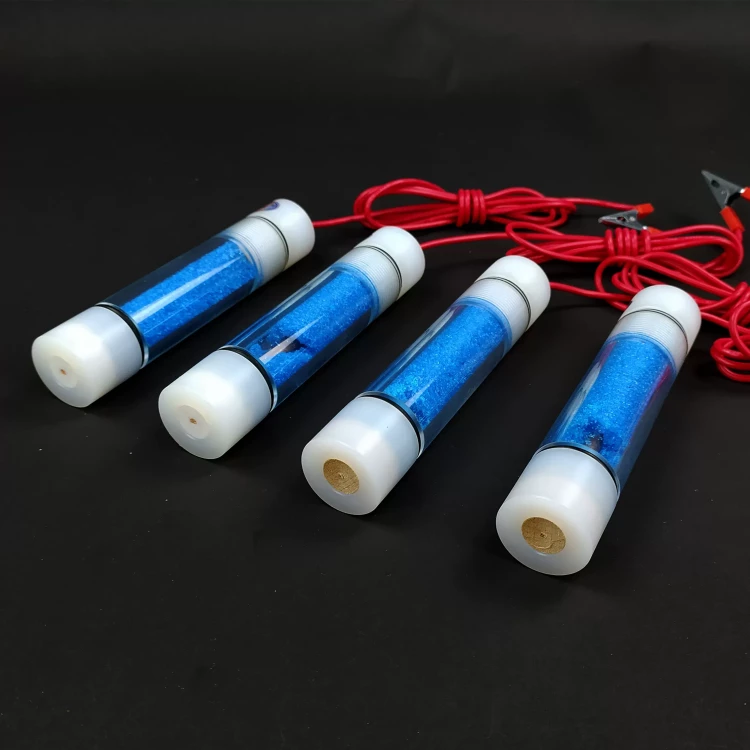
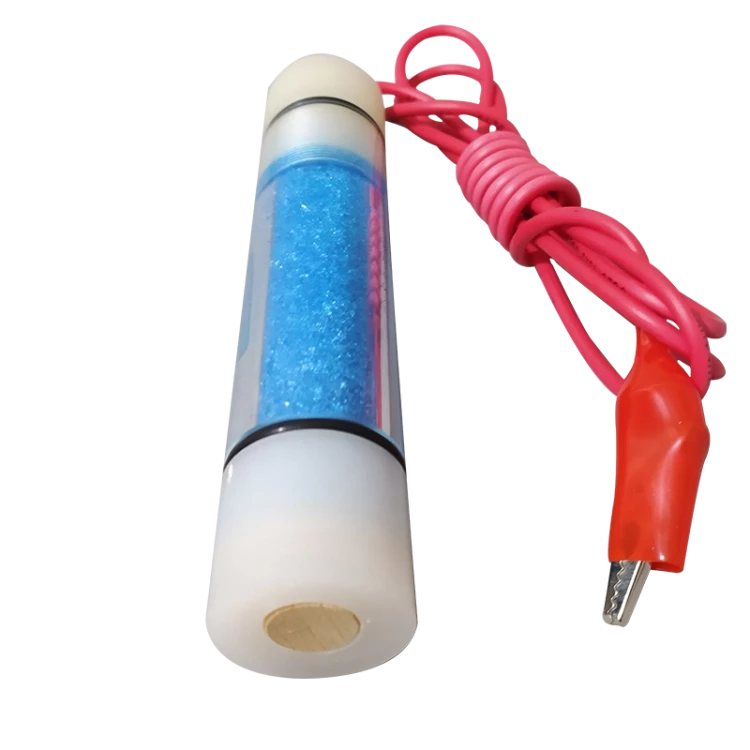
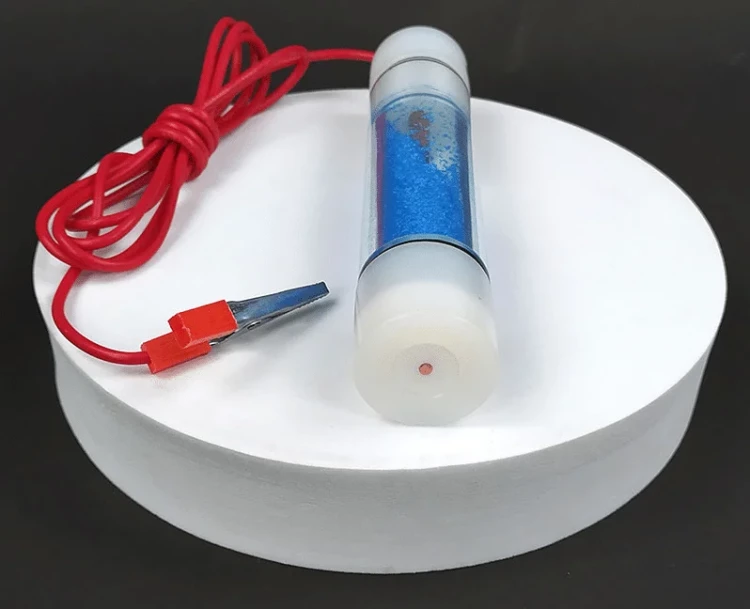
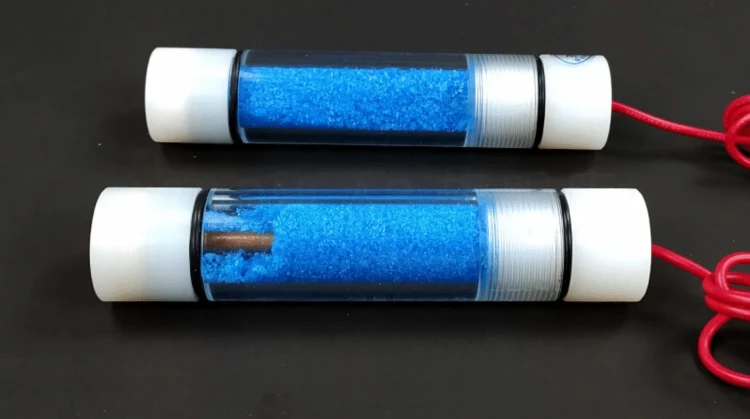
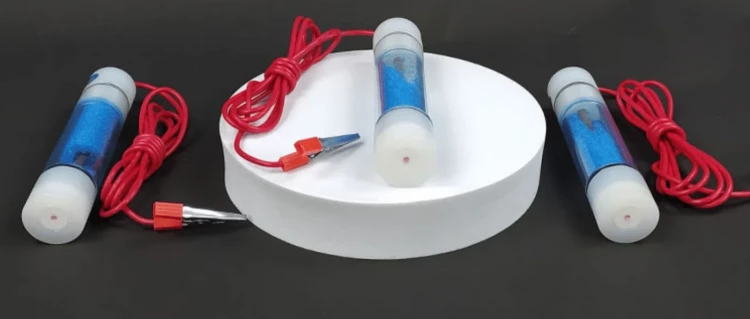
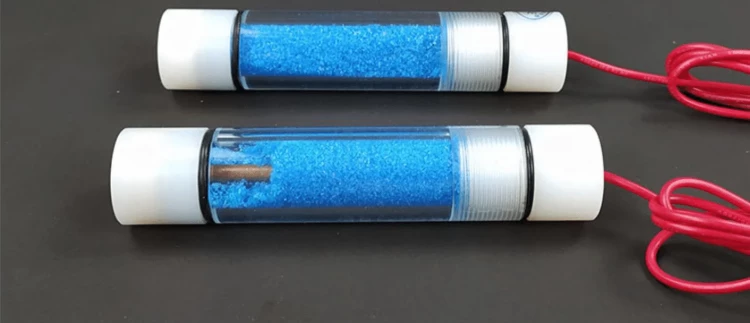

Designed for You
KinTek provide deep custom made service and equipment to worldwide customers, our specialized teamwork and rich experienced engineers are capable to undertake the custom tailoring hardware and software equipment requirements, and help our customer to build up the exclusive and personalized equipment and solution!
Would you please drop your ideas to us, our engineers are ready for you now!
Trusted by Industry Leaders

FAQ
What Is An Electrode In Electrochemistry?
What Is Reference Electrode With An Example?
What Is The Function Of Auxiliary Electrode?
What Are The 3 Electrodes In Electrochemistry?
What Is The Role Of Reference Electrode?
What Is The Difference Between Auxiliary And Reference Electrode?
What Are The Different Types Of Electrochemical Electrodes?
What Is Reference Electrode Used For?
What Materials Are Commonly Used For Auxiliary Electrodes?
What Materials Are Commonly Used For Electrochemical Electrodes?
What Is A Reference Electrode Vs Counter Electrode?
What Is The Difference Between Standard And Reference Electrode?
How Do Auxiliary Electrodes Affect The Performance Of An Electrochemical Cell?
What Factors Should Be Considered When Selecting An Electrochemical Electrode?
Why Are Auxiliary Electrodes Necessary In Electrochemical Systems?
How Can Electrochemical Electrodes Be Used In Various Applications?
Are There Any Limitations Or Considerations When Using Auxiliary Electrodes?
4.8 / 5
The Copper Sulfate Reference Electrode from KINTEK SOLUTION is a must-have for any laboratory. It's accurate, reliable, and built to last.
4.9 / 5
I've been using the Copper Sulfate Reference Electrode for a few months now and I'm really impressed with its performance. It's very stable and gives me accurate readings every time.
4.7 / 5
The KINTEK SOLUTION Copper Sulfate Reference Electrode is a great value for the price. It's well-made and comes with everything you need to get started.
4.8 / 5
I'm very happy with the Copper Sulfate Reference Electrode from KINTEK SOLUTION. It's easy to use and gives me consistent results.
4.9 / 5
The Copper Sulfate Reference Electrode is a great addition to my laboratory. It's helped me to improve the accuracy and precision of my experiments.
4.7 / 5
I would highly recommend the Copper Sulfate Reference Electrode from KINTEK SOLUTION. It's a great product at a great price.
4.8 / 5
I've been using the Copper Sulfate Reference Electrode for a few years now and it's still going strong. It's a very durable and reliable product.
4.9 / 5
The KINTEK SOLUTION Copper Sulfate Reference Electrode is a great investment. It's helped me to save time and money in my research.
4.7 / 5
I'm very impressed with the quality of the Copper Sulfate Reference Electrode from KINTEK SOLUTION. It's a top-of-the-line product that I would highly recommend.
REQUEST A QUOTE
Our professional team will reply to you within one business day. Please feel free to contact us!
Related Products

RRDE rotating disk (ring disk) electrode / compatible with PINE, Japanese ALS, Swiss Metrohm glassy carbon platinum
Elevate your electrochemical research with our Rotating Disk and Ring Electrodes. Corrosion resistant and customizable to your specific needs, with complete specifications.

Rotating Platinum Disk Electrode for Electrochemical Applications
Upgrade your electrochemical experiments with our Platinum Disc Electrode. High-quality and reliable for accurate results.
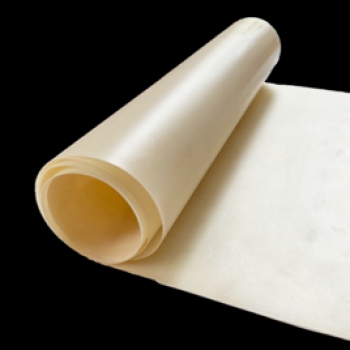
Anion Exchange Membrane for Laboratory Use
Anion exchange membranes (AEMs) are semipermeable membranes, usually made of ionomers, designed to conduct anions but reject gases such as oxygen or hydrogen.
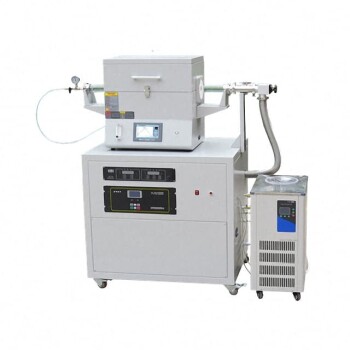
Split Chamber CVD Tube Furnace with Vacuum Station Chemical Vapor Deposition System Equipment Machine
Efficient split chamber CVD furnace with vacuum station for intuitive sample checking and quick cooling. Up to 1200℃ max temperature with accurate MFC mass flowmeter control.

1700℃ Controlled Atmosphere Furnace Nitrogen Inert Atmosphere Furnace
KT-17A Controlled atmosphere furnace: 1700℃ heating, vacuum sealing technology, PID temperature control, and versatile TFT smart touch screen controller for laboratory and industrial use.
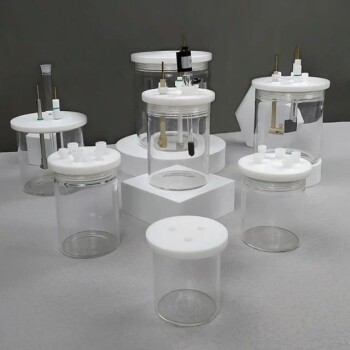
Electrolytic Electrochemical Cell with Five-Port
Streamline your laboratory consumables with Kintek's Electrolytic Cell with five-port design. Choose from sealed and non-sealed options with customizable electrodes. Order now.
Related Articles

Comprehensive Guide to Reference Electrodes: Types, Applications, and Selection Criteria
Explore the world of reference electrodes with our detailed guide. Learn about different types, their applications, and how to select the right one for your needs. Ideal for researchers and lab technicians.

Understanding Saturated Calomel Reference Electrodes: Composition, Uses, and Considerations
Explore the detailed guide on saturated calomel reference electrodes, including their composition, advantages, disadvantages, and applications. Ideal for researchers and lab technicians.

A Comprehensive Guide to Reference Electrodes
Reference electrodes are used in electrochemical measurements to establish a stable potential against which the potential of the working electrode can be measured.

Reference Electrodes: Calomel, Silver Chloride, and Mercury Sulfate - A Comprehensive Guide
Explore the world of reference electrodes, including calomel, silver chloride, and mercury sulfate. Understand their construction, principles, and applications in electrochemical measurements.

How to Make Your Own Ag/AgCl Reference Electrode for Electrochemical Experiments
A reference electrode is an electrode with a stable and well-defined potential that is used as a reference point to measure the potential of other electrodes. Reference electrodes are commonly used in electrochemical experiments to determine the potential difference between two electrodes.

Electrochemical Electrodes in Chemical Analysis
Electrochemical electrodes are essential tools used in many chemical analysis techniques and experiments. These electrodes are devices that allow us to measure the electrical potential difference in a chemical reaction.

A Guide to Choosing the Right Reference Electrode for Your ISE Analysis
Reference electrodes are an essential component of any electrochemical measurement.

How to Choose the Right Reference Electrode for Your Application
When it comes to measuring the electrical potential of a solution accurately, a reference electrode is an essential tool in the laboratory. It provides a stable and consistent reference point for other electrodes to measure against, ensuring accurate and reliable results.

Electrolytes and Electrochemical Electrodes
Electrolytes and electrodes play an essential role in electrochemistry. Electrolytes are substances that conduct electricity when dissolved in water or melted.

Understanding Electrodeposition with Electrochemical Electrodes
Electrodeposition is a process of depositing a metal or a non-metallic material onto a surface by applying an electric current.

A Beginner's Guide to Understanding Reference Electrodes in Electrochemistry
Reference electrodes provide a stable and known potential that other electrodes can be compared to, allowing for accurate measurements of electrochemical reactions.

Electrode Materials for Rotating Ring-Disk Electrodes
Rotating ring-disk electrodes (RRDEs) are used in a wide range of applications, from fuel cells to sensors, and they require careful selection of electrode materials for optimal performance.